According to the world health organization, around one in five children and adolescents have a mental disorder. As the world progresses and people are etched towards achieving their goals with each passing day, the need to talk about mental health issues has become greater than ever. From feeling anxious about completing mundane tasks to spiraling into a state of severe panic attacks, mental health issues may take many forms making you feel helpless in a battle against the intangible. According to a mental health care portal having a mental disorder isn’t easy, and it’s even harder when people assume you can get over it. This callus attitude makes it harder for effect and leads them to believe that there is no possible way out and that you’re past the point of recovery. However, the monopoly of ignorance is breaking up thanks to online awareness campaigns and people are opening up about mental health issues with the global community.
They say nothing is permanent, especially moods. Aren’t we all a little moody Sometimes it can all get dark for some of us, which is when it really gets serious? Fortunately, we are in the 21st century, and we have apps that help people stay attuned to their feelings and negative thoughts.
Today, technology’s playing a significant role in destigmatizing psychological issues and making it easier for people to reach out for help. These mental health apps for mood tracking are easily accessible for anyone trying to cope with mental health problems and are even believed to be effective in tracking the therapy process.
We have gathered for you a list of top-quality mental health apps for mood tracking that help support psychological health and assist users in documenting their mental health and temperamental attitudes.
1. Moodflow
Moodflow is a stunning, modern, and free one of the mental apps for mood tracking , emotions, thoughts, and overall well-being. Additionally, Moodflow follows you throughout your life, providing you with a fuller insight of yourself that you were previously unaware of. Finally, this will improve your business health and help you develop into a complete person. You are not even required to write anything down to gain meaningful insight or maintain a diary.
Pros
- Multiple entries per day -: Our moods change throughout the day. As a result, you should be able to enter as many times as you like.
- No annoying ads
- Moodflow is a very personal app; this is why we give you the freedom of personalizing almost anything!
- Create your own color palettes from scratch. Millions of possibilities!
Cons
- It freezes in some devices
- It doesn’t allow for mood reporting for more than a single day at a time, which means that unless you are reporting daily, it can be inconvenient to go back and fill in missed chunks of days.
2. Daylio Journal
Daylio journal is a private diary, self-care bullet journal, and habit tracker. It has over 350l downloads with an average rating of 4.7 stars. With Daylio, you can keep a private journal without having to type a single line.
It is versatile as well. You can use it as your fitness goal pal, mental health coach, your gratitude diary, and your mood tracker.
You can Pick your mood and add activities you have been doing during the day. You can also add notes and keep a more traditional diary with photos. Daylio is collecting recorded moods and activities in the statistics and calendar. This format will help you to understand your habits better.
When it comes to privacy, it does not collect nor store your data. Your data is stored locally on your phone. You can optionally schedule backups to your private cloud storage or take your backup file with you anywhere.
Cons
- Mood options are limited
- Graph feature is only available for premium users
- Contains Ads
3. Pixels
Pixels assist users with bullet planning. It is quite simple and easy for users to track their moods. All you have to do is log your thoughts through notes and emotions you felt with tags. You can also create custom tags for a more advanced journaling strategy.
You can also get insights and statistics on your data with its “Reports” feature. This enables you to s examine your data with advanced data visualization tools like graphs and data analysis.
Privacy and security are very important for mental health apps. They state that you are the only one with access to your data, and the development of the app is transparent.
When it comes to Ads, while it features ads, they are optional and non-intrusive. Overall, it’s easy and quick to use.
Cons
- It doesn’t have a button to invert premade palettes and unlock with a PIN by default.
- Can’t attach photos to specific days
- The keyword search is case-sensitive, which can be annoying.
- It only has five mood options.
- It doesn’t have automatic backups.
4. Mood Patterns
Due to its many features, Mood Patterns is NOT the simplest mood tracker. It probably will take you a few minutes until you know your way around the app. But they have made it worth your while with helpful, detailed, and multifaceted insights.
It is usable as a mood tracker, mood diary, and mood journal. It has more than 20 predefined mood scales, out of which you can select the most suitable mood accordingly. It also includes 30 fully customizable scales.
When it comes to security, Mood Patterns does not request Internet permission. Therefore no data transfer in the background without your knowledge is possible. The app lock includes assuring that only you can use your Mood Patterns app. To prevent the app lock is bypassed by connecting your mobile phone to a PC, all data is 256-bit AES encrypted. Unfortunately, there is no 100% safety, but Mood Patterns make it hard to get your data without your consent.
Cons
- It can be complex to use for new users
- No option to turn off the 6-dig PIN
5. CBT thought diary
CBT Thought Diary uses effective tools from Cognitive Behavioral Therapy (CBT), Acceptance and Commitment Therapy (ACT), Dialectical Behavioral Therapy (DBT), and Positive Psychology to help improve your mood.
The centerpiece of cognitive-behavioral therapy (CBT) is learning to identify negative and distorted thinking patterns to change your emotions and behaviors. In CBT, a “thought record” guides you through the steps of identifying, challenging, and reinterpreting negative thinking patterns. With Thought Diary, you can document your negative emotions, analyze flaws in your thinking, and re-evaluate your negative thoughts into more balanced ones. It may even help you recognize helpful ways to deal with your negative behaviors and emotions for future situations.
Cons
- Can be expensive
Is there anyone who should refrain from using mental health apps?
Anyone suffering from a severe mental health condition or addiction or who is suicidal should visit their doctor or health care professional first (or a suicide helpline or 911 in an emergency). This is due to the fact that mental health applications are not intended to diagnose or replace mental health professionals.


[…] If you enjoy all of these wedding websites, it’s probably because you have a penchant for technology. Check out our compilation of the best mental health apps for mood tracking. […]